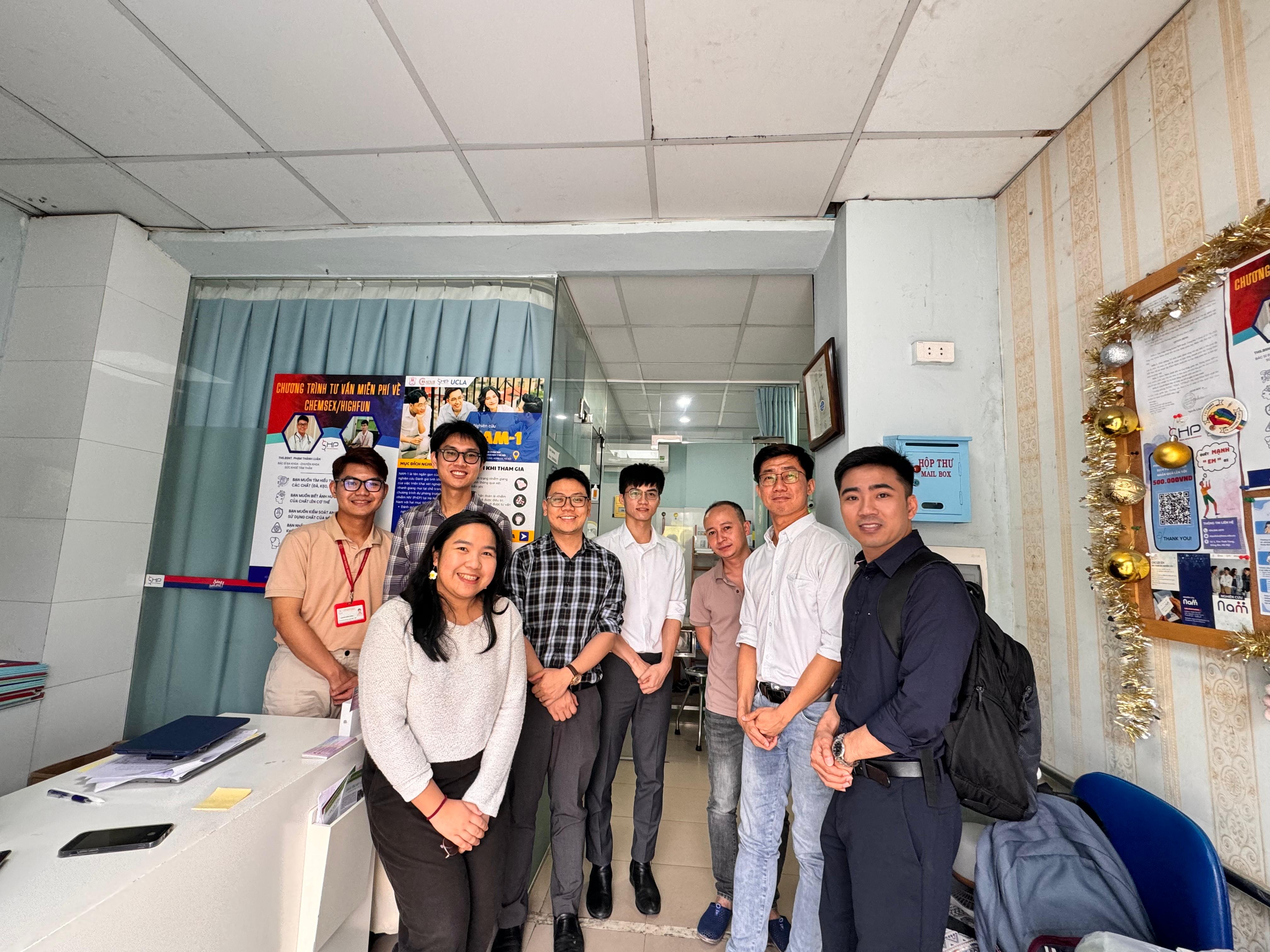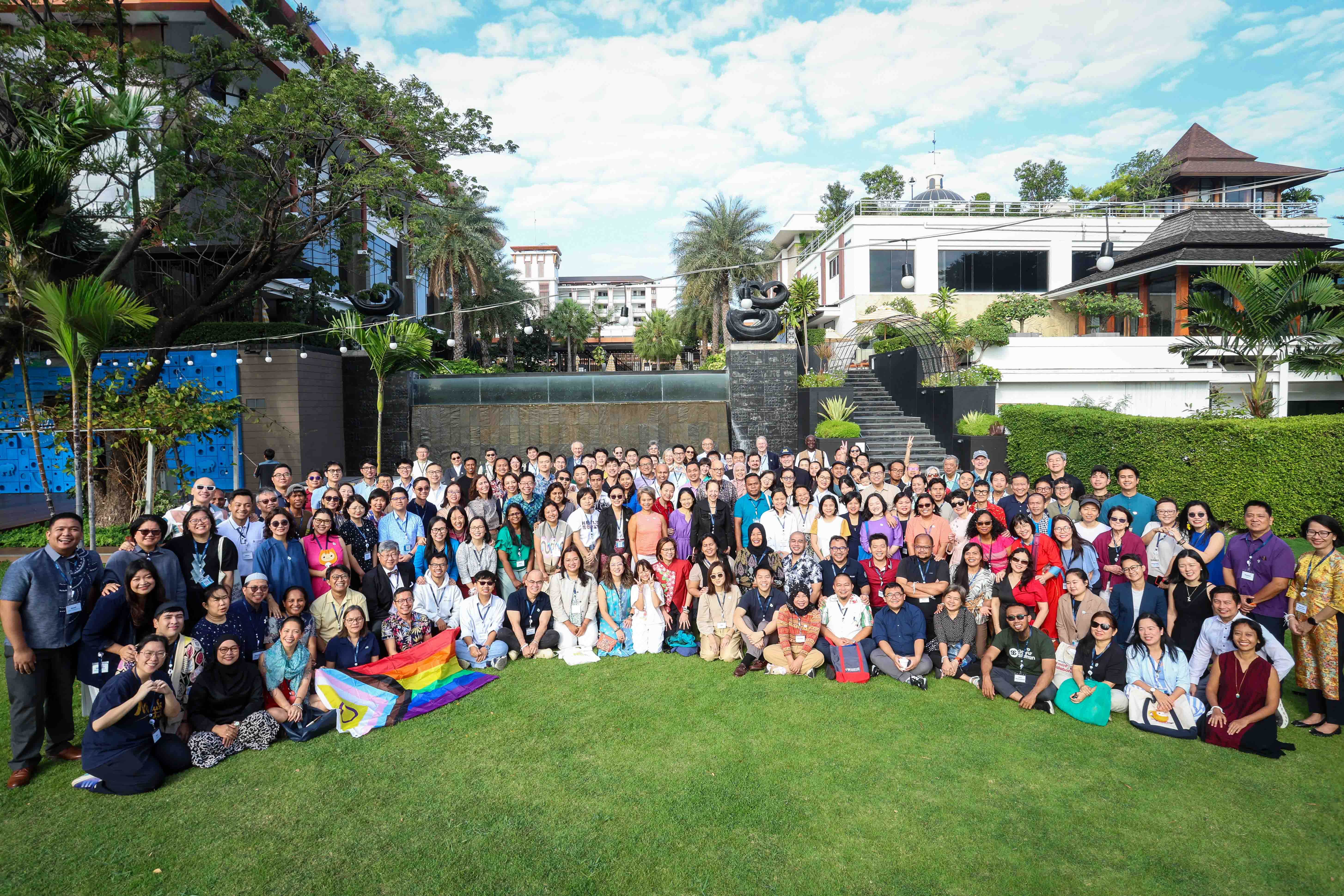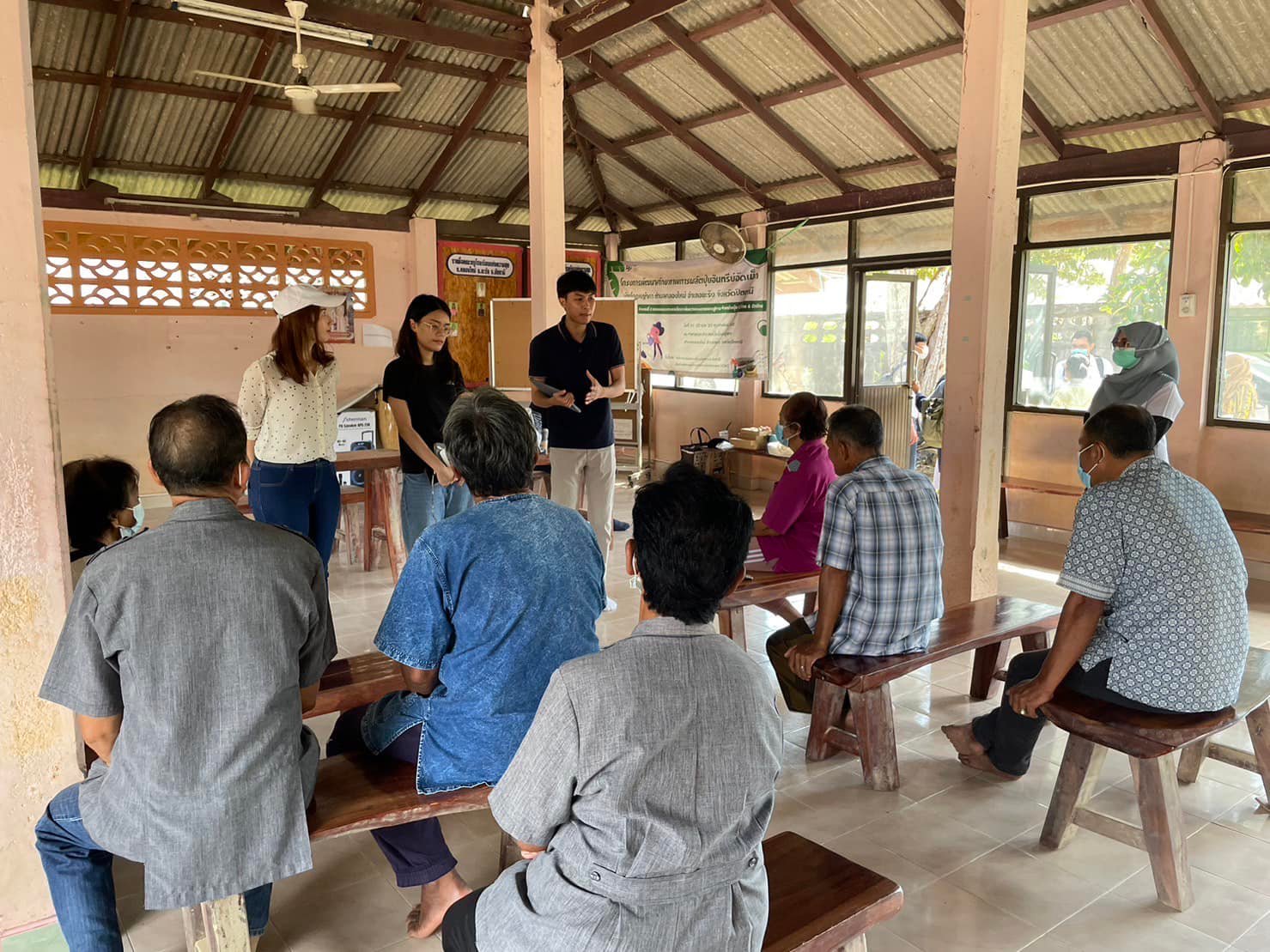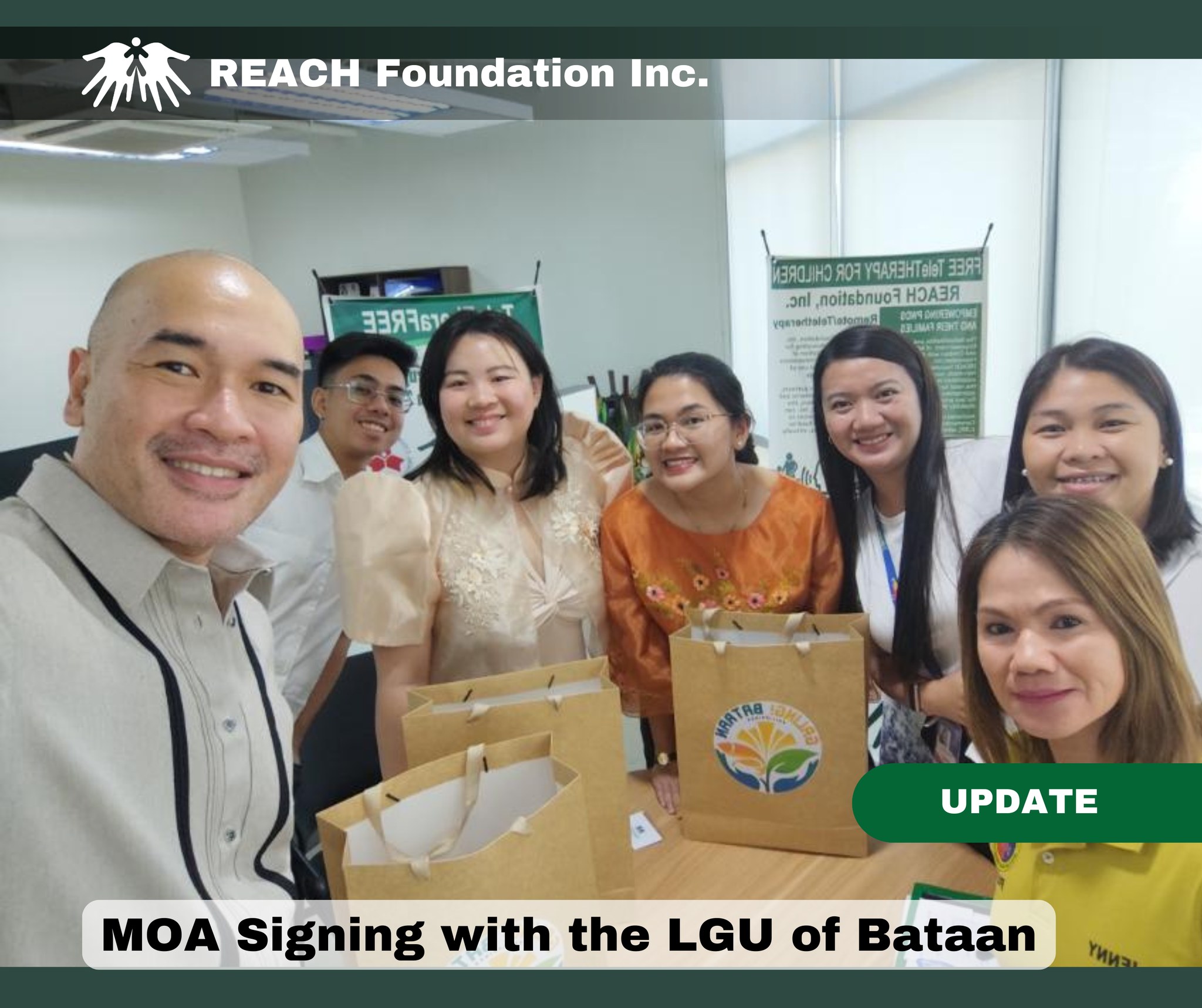Enhancing Mental Health Support for LGBTQ+ Communities in Hanoi, Vietnam: Our Journey, Challenges, Lessons, and Impact
Project Type: Equity Initiative Second Year Project
Project Name: Enhancing Mental Health Support for LGBTQ+ Communities in Hanoi, Vietnam
EI Fellows: Wai Lwin (2023, Myanmar), Anond Kulthanmansusorn (2023, Thailand), Mai Quang Anh (2023, Vietnam)
Our Second Year Project under the Equity Initiative (EI) has been a transformative journey shaped by solidarity, resilience, and a shared commitment to improving mental health outcomes for the LGBTQ+ community in Vietnam. As EI Fellows from Thailand, Myanmar, and Vietnam, we came together after our Induction Year to design a project that would meaningfully address a critical gap: the lack of culturally relevant tools to assess mental health issues and suicidal ideation among LGBTQ+ individuals in Vietnam.
From the start, we recognized that suicide prevention remains a deeply sensitive and often overlooked topic in our country – even within the LGBTQ+ community itself. This cultural barrier motivated us to design a project that could serve not only as a research intervention, but also as a catalyst for wider dialogue and support.
However, our path was far from smooth.
First, our team members were located in different countries, operating across different national contexts. Coordinating regular meetings and project milestones required a high level of commitment, flexibility, and mutual trust. Despite these logistical hurdles, we stayed connected, adapted our workflows, and sustained strong engagement throughout the project's lifecycle.
Second, the sensitivity of the topic itself. Gaining ethical approval from review boards for our research took longer than anticipated, delaying some early-stage activities. Convincing marginalized community members to openly discuss mental health issues let alone suicidal thoughts also required exceptional care, cultural sensitivity, and community trust.
Rather than being discouraged, we leaned into these challenges as opportunities for growth. We adopted a community-centered approach, investing time into building genuine relationships with local LGBTQ+ networks, consulting mental health experts, and listening closely to concerns voiced by community members. We understood that success depended on community ownership of the project.
One of the most profound lessons we learned is the sheer power of collective leadership. While our academic knowledge and technical skills provided a foundation, it was the active and diverse participation of the community that propelled our project forward. We learned to recognize each team members strengths, delegate responsibilities strategically, and provide mutual support. These leadership practices enabled us to navigate a complex and sensitive project with grace and purpose.
The impact we have made is something we are deeply proud of. Despite the challenges, we successfully recruited over 530 participants a remarkable achievement given the cultural and contextual barriers. We generated one of the first comprehensive datasets on mental health and suicidal ideation within Vietnam’s LGBTQ+ community, helping to address a longstanding gap in national public health data.
We also developed Vietnam’s first mental health screening specifically tailored for LGBTQ+ populations. It is now being routinely used in clinical settings at our partner clinic to help healthcare providers detect mental health concerns early and connect clients to support services.
Beyond these tangible achievements, we also built something equally important: a lasting network of collaboration among EI fellows, local LGBTQ+ organizations, mental health experts, and healthcare providers. The relationships we forged and the collective leadership we practiced throughout the project will continue to sustain efforts to improve LGBTQ+ mental health support in Vietnam well into the future.
This project laid the foundation for broader community-based interventions and inspired us to seek resources to scale our work. Our ambition is now to expand the use of the mental health screening tool to more clinics and organizations nationwide and to empower more community-led initiatives addressing mental health and suicide prevention in marginalized populations.
Ultimately, what we have learned is simple but powerful: real change begins with empathy, collaboration, and the courage to address even the most difficult conversations. Our journey taught us that with solidarity, trust, and shared leadership, even the greatest barriers can be overcome — and that together, we can make a lasting difference.
About These Stories
These stories were written by Equity Initiative Fellows about their Second Year Projects. Second Year Projects are collaborative efforts by Fellows to apply their leadership training toward real-world health equity issues. Fellows work across countries and disciplines to co-create and implement projects that embody the values of equity, community leadership, and regional solidarity. While the projects focused on implementing community-based solutions to health equity challenges, the stories were submitted to the Equity Initiative as a way to document and share their work




